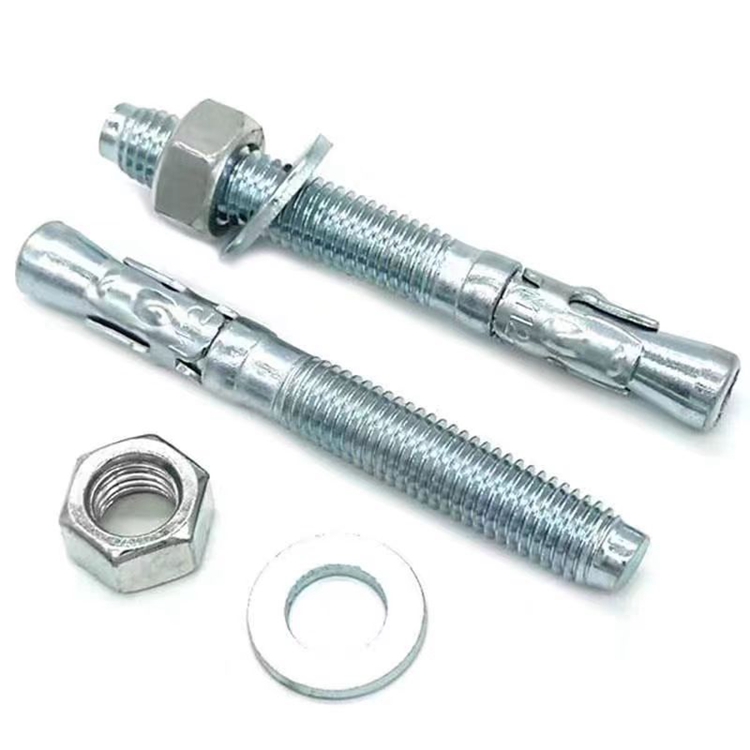best stud bolt 3 4
Nov . 21, 2024 11:59 Back to list
best stud bolt 3 4
Understanding the Importance of Best Stud Bolts in Engineering Applications
In the field of engineering, the choice of fasteners can significantly influence the performance and durability of structures and machinery. Among the various types of fasteners available, stud bolts play a crucial role, particularly in high-stress applications such as piping systems, pressure vessels, and heavy machinery. This article will focus on the significance of selecting the best stud bolts, particularly the features that make certain stud bolts stand out in demanding environments.
What Are Stud Bolts?
Stud bolts are threaded rods that provide a means for creating a bolted connection without the need for a full bolt assembly. Typically, they consist of a cylindrical body with threads on both ends and can be used in combination with nuts or other fastening components. Their primary function is to hold two or more parts together securely while allowing for disassembly if necessary, making them a preferred choice in many industrial applications.
The Characteristics of Best Stud Bolts
When identifying the best stud bolts, several characteristics should be considered, including material, coating, strength, and threading.
1. Material The most common materials used for stud bolts include carbon steel, stainless steel, and alloy steel. Each material offers different properties such as corrosion resistance, tensile strength, and temperature tolerance. For instance, stainless steel stud bolts are ideal for corrosive environments, making them a popular choice in chemical processing industries.
best stud bolt 3 4

2. Coating The coating on stud bolts can enhance their durability and resistance to environmental factors. Coatings, such as zinc plating or ceramic, can prevent corrosion and wear, increasing the longevity of the fasteners in harsh conditions.
3. Strength The strength of a stud bolt is determined by its grade, which relates to the bolt’s tensile and yield strengths. Grades ranging from ASTM A193 B7 to A320 L7 are commonly used in engineering applications. Selecting the appropriate grade is essential for ensuring that the stud bolts can withstand the operational pressures and loads they will encounter.
4. Thread Design The design of the threads on a stud bolt significantly impacts the performance of the bolted connection. Coarse threads offer greater resistance to loosening and are easier to install, while fine threads provide better tensioning capabilities. The choice between these depends on specific application requirements.
Applications of Stud Bolts
Stud bolts are pivotal in sectors such as oil and gas, power generation, and infrastructure. In pipeline systems, for instance, they are utilized to connect flanges and valves securely, preventing leaks and ensuring the safety of high-pressure environments. Additionally, in the construction of heavy machinery, stud bolts contribute to the integrity and stability of joint assemblies.
Conclusion
In conclusion, choosing the best stud bolts is fundamental for ensuring robust and reliable connections in a variety of engineering applications. By considering factors such as material, coating, strength, and thread design, engineers and technicians can select the most suitable stud bolts that will meet the demands of their specific projects, ultimately leading to safer and more efficient operations. Understanding these key elements empowers teams to make informed decisions that enhance both performance and safety in their engineering endeavors.
Latest news
-
Reliable Wire Bolts Suppliers | Quality Zinc Plated Fasteners
NewsAug.26,2025
-
Wire Bolts Suppliers: Durable & Reliable Fasteners for Every Project
NewsAug.25,2025
-
Premium Cabinet Bolts Supplier | Wholesale & Custom Solutions
NewsAug.24,2025
-
Reliable Axle Nuts Supplier | Quality & Precision Fasteners
NewsAug.23,2025
-
Durable Bolts for Lawn Mower Handle - Top Supplier & Manufacturer
NewsAug.22,2025
-
High-Quality Bolts for Lawn Mower Handle Supplier & Manufacturer
NewsAug.21,2025
